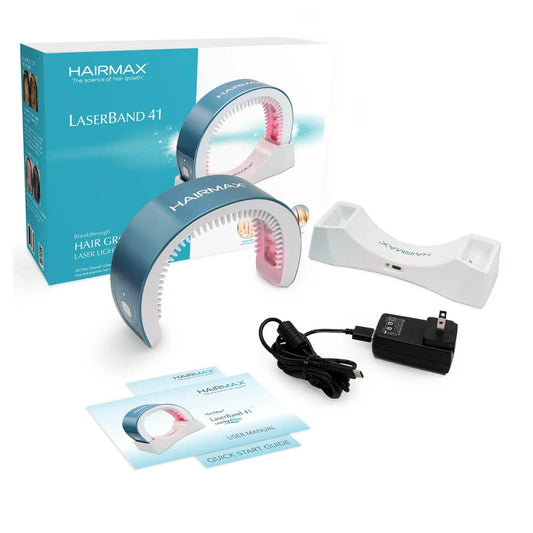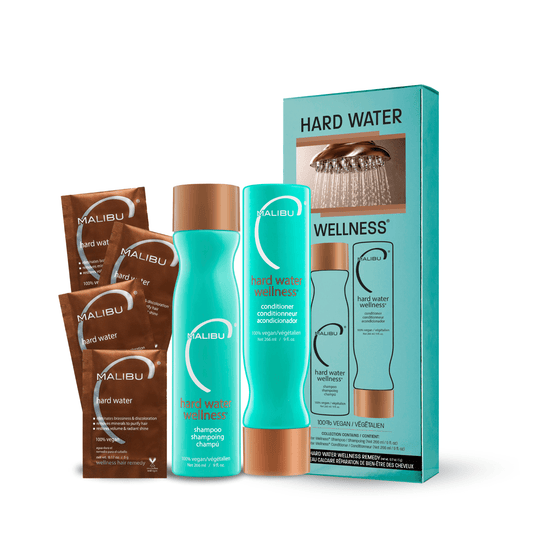
Hair Fall Myths vs. Facts: Choosing the Right Shampoo
Share
People of all ages worry about hair fall, and one of the most frequent queries is "Which shampoo should I use to reduce hair fall?" It's simple to feel overwhelmed by the abundance of options available on the market and the many myths surrounding hair care products. In addition to debunking some of the most widespread fallacies around hair loss, this article will offer advice on selecting the best shampoo for your requirements.
Myth 1: Shampoo Causes Hair Fall
A commonly held misconception is that frequent shampooing causes hair loss. In actuality, shampoo does not directly cause hair loss. Between 50 and 100 strands of hair naturally shed each day; this process is frequently more apparent after brushing or bathing. Shampoo aids in cleaning the scalp and gets rid of extra oil, debris, and product buildup—all things that are essential to keeping the environment around the scalp healthy.
Fact:
Selecting a shampoo that is appropriate for your hair type and scalp health is crucial. You may preserve the natural oils in your scalp, which are crucial for good hair growth, by using a mild, sulfate-free shampoo. Steer clear of shampoos containing harsh chemicals like sulfates and parabens, as these can irritate the scalp and eventually make hair loss worse.
Myth 2: All Shampoos for Hair Fall Work the Same
Many people believe that all shampoos labeled "anti-hair fall" or "hair growth" will work similarly. But not every shampoo for hair loss is made equal. Some may target strengthening hair strands or minimizing breakage, while others may be made to cure hair loss brought on by disorders of the scalp. The way a shampoo's ingredients meet the unique needs of your hair and scalp determines how successful the product is.
Fact:
Look for shampoos with saw palmetto, biotin, keratin, niacin, and caffeine—ingredients that support healthy scalps. These components support healthy hair growth conditions, strengthen hair follicles, and enhance blood flow to the scalp. Selecting a shampoo that meets the demands of your hair will also be made easier if you are aware of the sort of scalp you have, whether it is oily, dry, or sensitive.
Myth 3: More Lather Means a Better Clean
Strong lathering shampoos are often believed to clean better and manage hair fall more successfully. The presence of sulfates, which produce a rich foam, is related to this idea. Sulfates, on the other hand, may be overly abrasive for the scalp, causing dryness and irritation that over time may lead to a rise in hair loss.
Fact: Cleaning is not the same as lather. Shampoos without sulfates that produce less foam can nonetheless thoroughly clean the scalp without depleting it of natural oils. Picking a shampoo that contains natural components and moderate cleansing agents will support the health of your scalp, which is essential for reducing hair loss
Choosing the Right Shampoo: Key Takeaways
Determine Your Scalp Condition and Hair Type: Determine if your scalp is dry, oily, or sensitive, then choose a shampoo appropriately.
- Examine the ingredients: Seek for helpful ingredients that promote the health of your hair and scalp, such as keratin, biotin, and natural extracts.
- Avert Dangerous Chemicals: Shampoos that include artificial perfumes, parabens, or sulfates should be avoided since they may irritate the scalp.
- The greatest shampoos for hair fall aren't usually the priciest or the ones that create the most foam. Don't Be Misled by Price or Lather.
- Embrace a Holistic Haircare Program: For best results, use the right shampoo in conjunction with a nutritious diet, a healthy lifestyle, and less heat styling.
You may make better decisions that promote the health of your hair by being aware of the facts and myths around shampoos and hair loss. Recall that while the correct shampoo can have a big impact, the best results will come from addressing other issues that contribute to hair loss as well.
By understanding the myths and facts about hair fall and shampoos, you can make more informed choices that support your hair health. Remember, the right shampoo can make a significant difference, but it's equally important to address other factors contributing to hair fall for the best outcomes.



